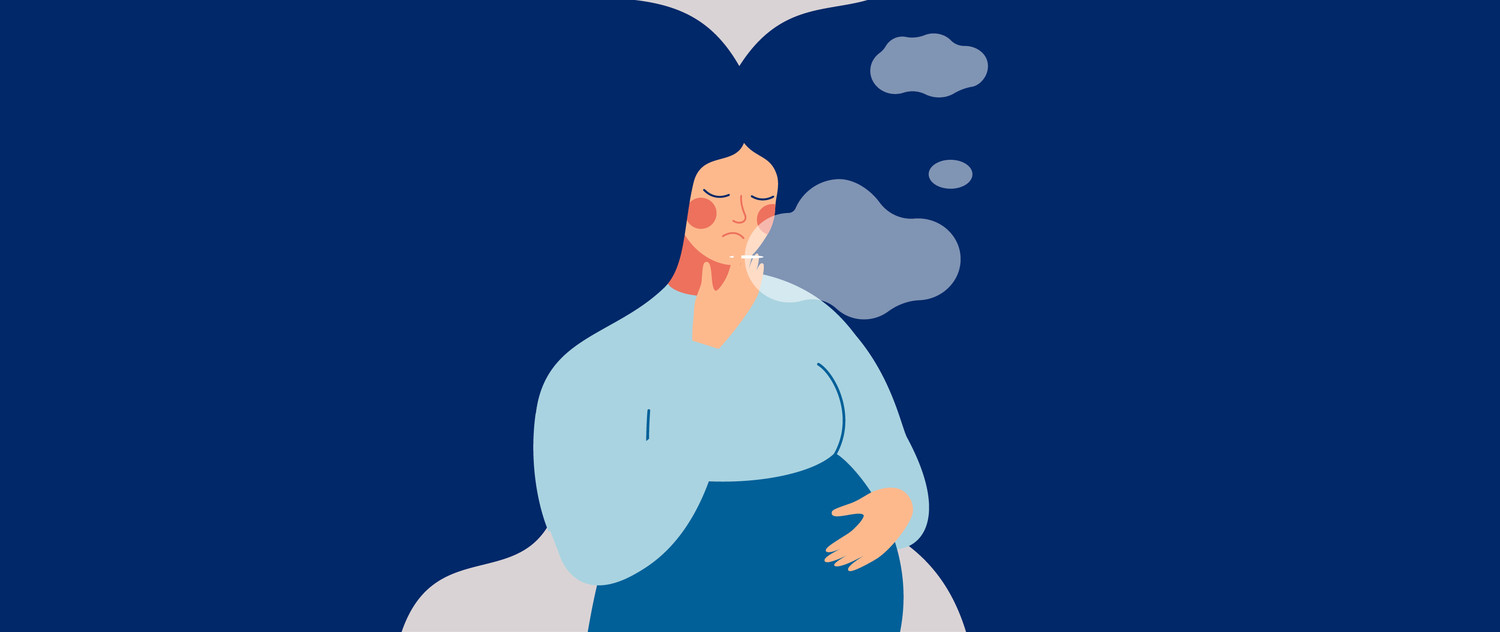Depression is a serious mental health disorder that can affect anyone, regardless of age, race, or gender. Depression can cause intense feelings of sadness and hopelessness that can last for weeks or months at a time. It is estimated that around 6.7% of Americans suffer from depression each year. The good news is that depression is treatable, and many people who seek treatment can live happy and fulfilling lives. In this blog post, we will discuss first-trimester depression: what it is, how to identify it, and how to get help.
Contents
What Is First Trimester Depression?

First-trimester depression is a mental health condition that can occur during the first three months of pregnancy. Symptoms of first-trimester depression may include sadness, hopelessness, anxiety, and lack of interest in activities that were once enjoyed. While it is not yet known exactly what causes first-trimester depression, it is believed to be due to a combination of hormonal changes and psychological factors.
This type of depression is different from the “baby blues,” which are much more common and typically last only a few days to a couple of weeks after childbirth. First-trimester depression can last for the entire duration of the pregnancy and may even persist after the baby is born.
First-trimester depression is considered a serious medical condition that requires treatment. If you are experiencing any symptoms of first-trimester depression, it is important to talk to your doctor or mental health professional as soon as possible. With proper diagnosis and treatment, most women with first-trimester depression will go on to have healthy pregnancies and healthy babies.
First Trimester Depression vs. “Baby Blues”
It is important to distinguish between first-trimester depression and the “baby blues.” The baby blues are much more common, affecting up to 80% of new mothers. The baby blues typically begin around day 3-5 after delivery and resolve within 2 weeks postpartum.
In contrast, first-trimester depression is rare, affecting only 1-5% of women. However, this type of depression can have a significant impact on a woman’s ability to function and care for her baby. First-trimester depression is also more likely to be accompanied by anxiety and obsessive-compulsive symptoms.
The other key difference is that the baby blues go away on their own, while first-trimester depression requires treatment.
Causes of First-Trimester Depression

First-trimester depression has several possible causes. There are several possible causes of first-trimester depression, including:
Hormonal Changes
During pregnancy, there is a rapid increase in the levels of estrogen and progesterone. These hormones play an important role in regulating mood, and their sudden increase can trigger depression in susceptible women. These hormonal changes can also lead to other symptoms of first-trimester depression, such as fatigue, changes in appetite, and sleep problems.
Genetic Factors
Depression runs in families, so it is not surprising that it can occur during pregnancy. If a woman has a history of depression, she is more likely to experience it during pregnancy. This is especially true if she has had previous episodes of postpartum depression.
Stressful Life Events
Pregnancy can be a stressful time, both emotionally and physically. Stressful life events, such as the death of a loved one or financial problems, can trigger depression in susceptible women. These stressful life events also tend to be accompanied by other risk factors for first-trimester depression, such as lack of social support and sleep problems.
Lack of Social Support
Women who do not have a strong network of family and friends are at increased risk for first-trimester depression. This is because they may feel isolated and alone during pregnancy. Lack of social support can also lead to other risk factors for first-trimester depression, such as stress and sleep problems.
Sleep Problems
Sleep problems are common during pregnancy, due to the physical changes that occur in the body. These changes can make it difficult to get a good night’s sleep. Sleep problems can also be caused by stress or anxiety. Sleep deprivation can trigger depression in susceptible women.
Can First Trimester Depression Impact The Child?
The impacts of first-trimester depression can also extend to the child. Studies have shown that first-trimester depression is associated with an increased risk of preterm birth and low birth weight. Additionally, first-trimester depression has been linked to an increased risk of postpartum depression. Postpartum depression is a serious condition that can hurt the mother-child relationship.
Another negative impact can be found in the child’s behavior. Studies have shown that children of mothers who experience first-trimester depression are more likely to have problems with emotional regulation and social skills. Additionally, these children are at increased risk for developing anxiety and depression later in life.
First-trimester depression can also impact the father-child relationship. Fathers who have a partner with first-trimester depression are more likely to experience symptoms of depression themselves. This can lead to difficulty bonding with their child and problems with parenting.
Mothers can also have an impact on their child’s health. Studies have shown that mothers with first-trimester depression are more likely to smoke and less likely to breastfeed. These unhealthy behaviors can hurt the child’s health.
Treatment of First-Trimester Depression

If you think you might be depressed, it is important to seek help from your healthcare provider. Treatment for first-trimester depression typically includes a combination of psychotherapy and medication.
Psychotherapy
Psychotherapy, also known as counseling or talk therapy, can be an effective treatment for first-trimester depression. Also, Psychotherapy can help you understand and deal with the thoughts and emotions that are causing your depression. It can also help you develop coping strategies for dealing with stress and other triggers.
Cognitive-Behavioral Therapy
Cognitive-behavioral therapy (CBT) is a type of psychotherapy that can be used to treat first-trimester depression. CBT focuses on changing negative thoughts and behaviors that contribute to depression. CBT can be an effective treatment for first-trimester depression, particularly when used in combination with medication.
Electroconvulsive Therapy
Electroconvulsive therapy (ECT) is a treatment that is typically used for severe or treatment-resistant depression. ECT involves passing electrical currents through the brain to trigger a seizure. ECT can be an effective treatment for first-trimester depression, particularly when other treatments have failed.
Medication
There are several different types of medications that can be used to treat first-trimester depression. The most common type of medication used is antidepressants. Antidepressants can help to reduce the symptoms of depression. They work by balancing the levels of neurotransmitters in the brain.
Lifestyle Changes
There are several lifestyle changes that can help to reduce the symptoms of first-trimester depression. These changes include getting regular exercise, eating a healthy diet, and getting enough sleep. If you are struggling with first-trimester depression, these lifestyle changes can help to make a difference.
Conclusion
First-trimester depression is a real and serious condition that can hurt both the mother and her developing baby. If you think you may be suffering from first-trimester depression, it is important to seek professional help. With treatment, first-trimester depression can be managed and you can have a healthy pregnancy.
If you are pregnant and struggling with depression, know that you are not alone. Help is available.
Hope this article was of help to you! If you are suffering from mental health disorders, you may seek help from Therapy Mantra. We have a team of highly trained and experienced therapists who can provide you with the tools and skills necessary for overcoming mental health disorders. Contact us today to schedule an online therapy or download our free Android or iOS app for more information.


